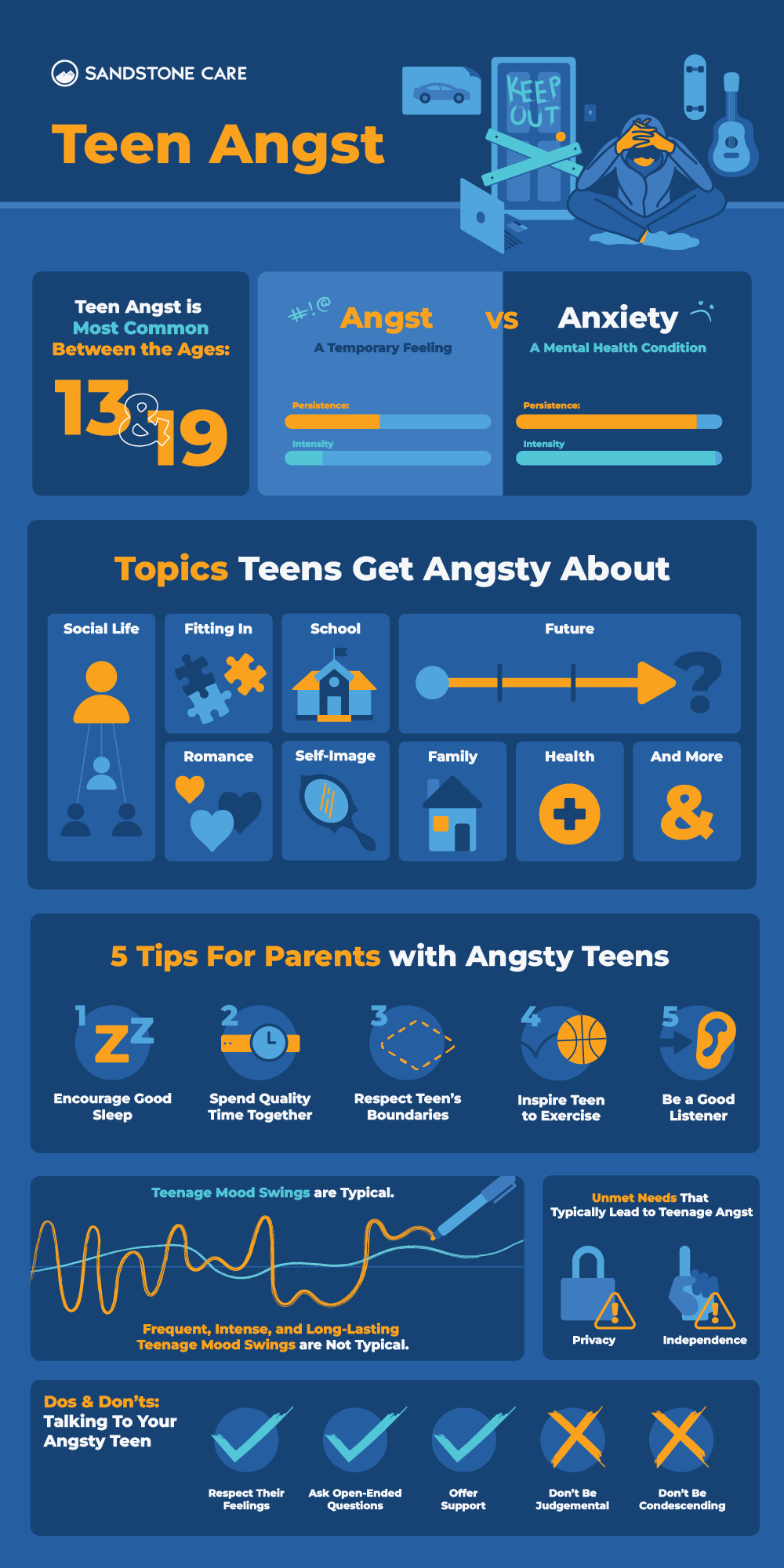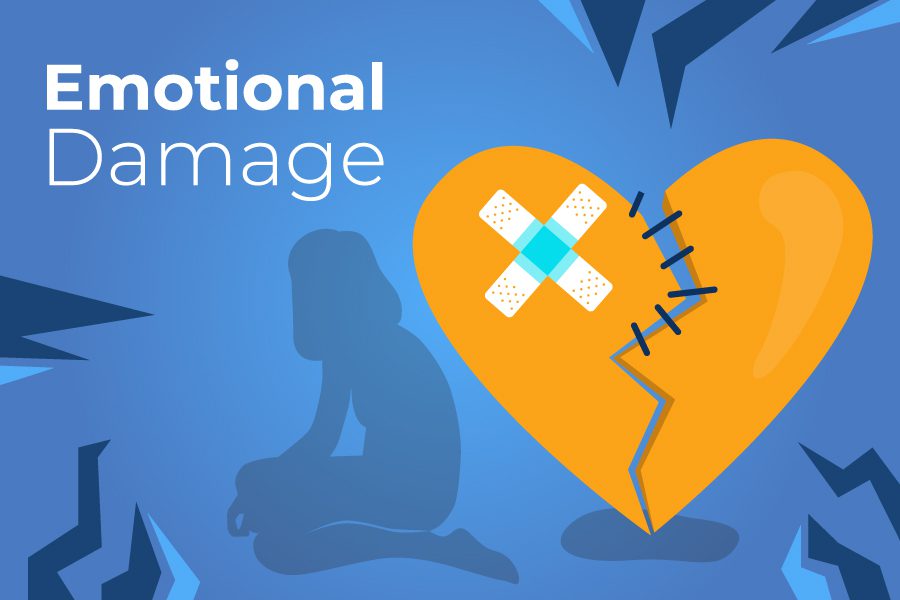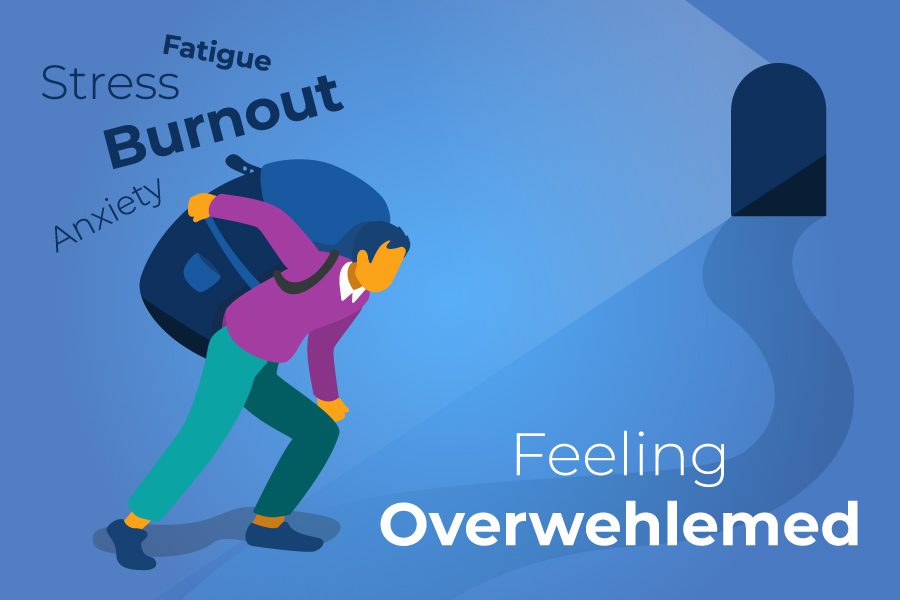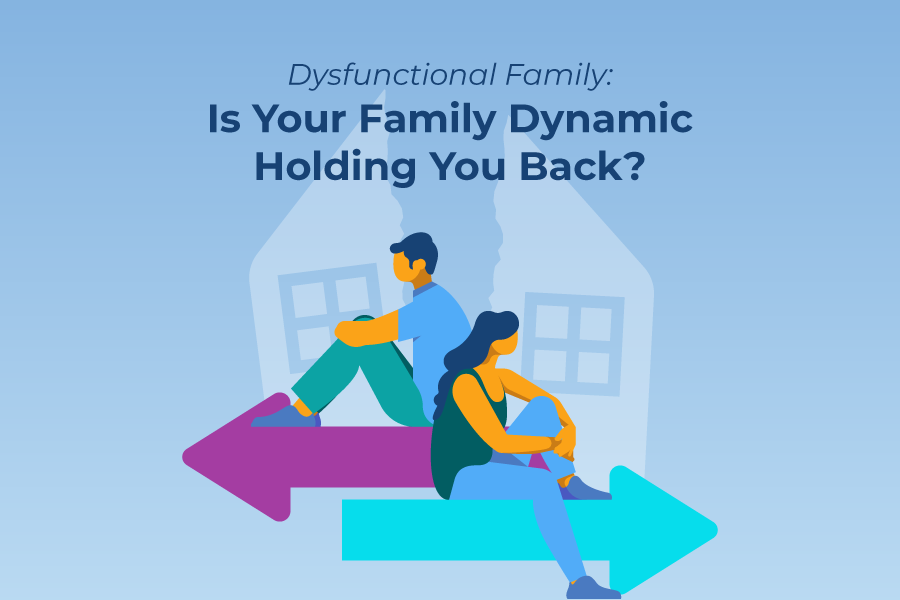Teen Angst
What Is Teenage Angst?
Teenage angst involves feelings of anxiety, worry, and stress.
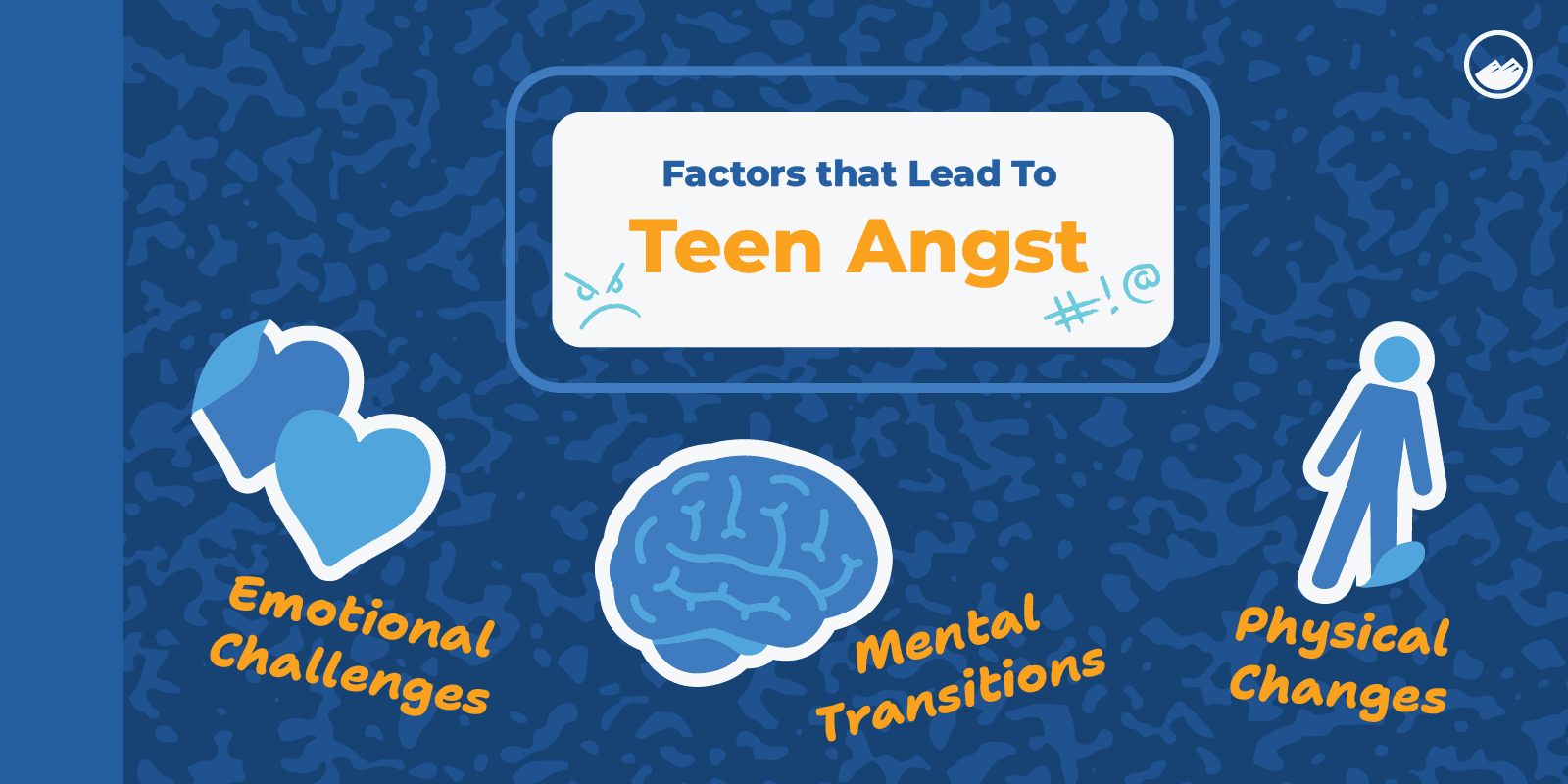
Teenagers go through many new changes, transitions, and challenges during their teenage years, often leading to difficult feelings and emotions. Along with anxiety and worry, they may feel overwhelmed, rejected, or worthless.
Teenage angst can also share similar signs with common mental illnesses in adolescents and teens, such as anxiety disorders or teen depression.
Are Teenage Mood Swings Typical?
Teen mood swings are common and normal.
The changes in a person’s brain, body, and life during the teenage years can cause mood swings that may make a normal teen more “moody,” tired, withdrawn, or irritable.
However, mood swings in teens that seem to be frequent don’t seem to fade away or appear to be intense, which may signal an underlying problem that may need to be addressed. Being aware of the warning signs of mental health disorders in teens and being present in their lives can help you better understand if they may be facing underlying problems.
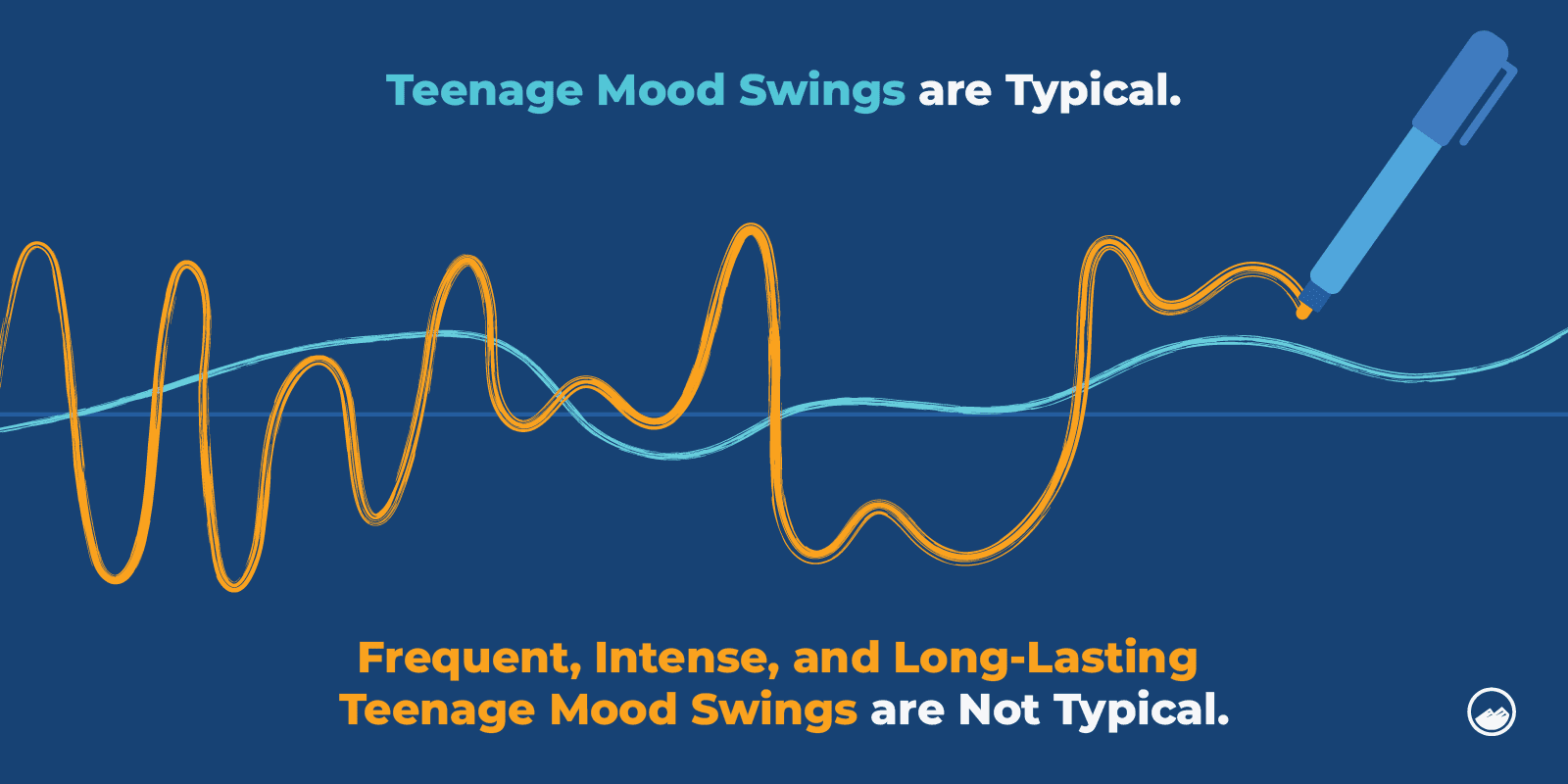
Is Teen Angst a Part of Growing Up?
Teen angst can be a part of growing up and becoming an adult.
The experiences and challenges that individuals face in their teen years can help shape them into the adults they become.
Causes of Teenage Angst
What Causes Feeling of Angst?
A variety of different things can cause feelings of angst.
Causes of angst may include:
- Unexpected events or situations
- Big life changes
- Hormonal changes
- Facing uncertainty
One of the biggest underlying causes of teen angst is a need for a new level of privacy and independence. As typical teens undergo so many changes in their lives, they may start to think more about their appearance, friendships and relationships, and future.
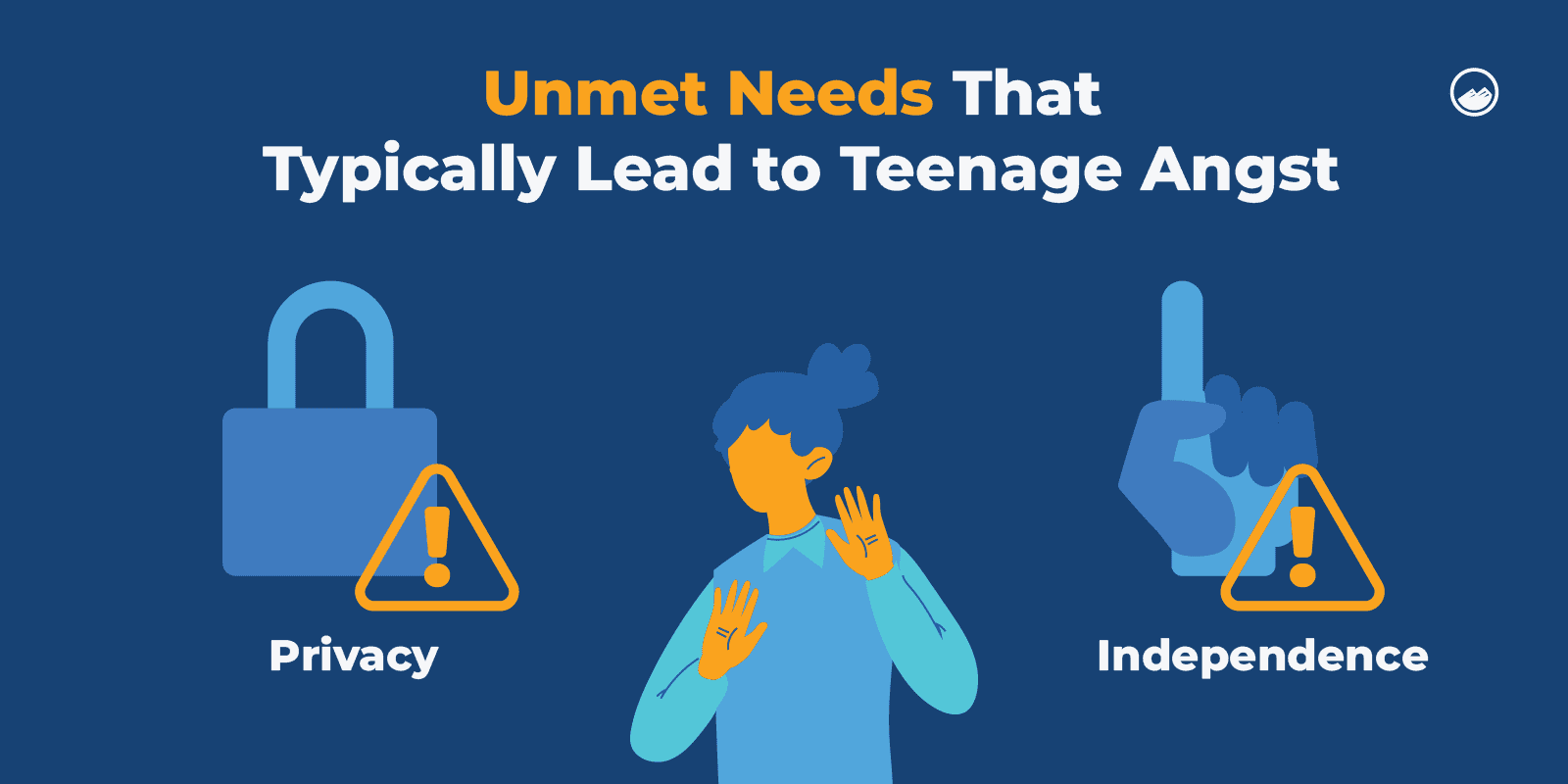
When these thoughts become overwhelming, it can create worry, anxiety, and uncertainty, especially combined with experiences such as peer pressure.
What Are the Reasons for Angst?
In the teenage years, individuals often try to find a sense of identity as they grow into adults.
Angst often stems from insecurity as teens go through many physical changes and mental changes. These are sometimes referred to as “moodiness.” Feelings of angst may occur because teens are adjusting to all of these changes and may not know how to cope with them.
What Are the Main Topics That Teens Get Angsty About?
Teen angst can be different from person to person.
Many people in high school may become more angsty about their social life, such as looking or acting a certain way to feel accepted or to fit in with their peers. This is because they have a newfound sense of self that is very important to who they are.
They may feel pressure to conform to standards set by the people around them, and this may cause them to have a negative self-image or even low self-esteem. Teens may also get angsty about new romantic relationships.
Other things teens may get angsty about can include school troubles, their future, family, health, and more.
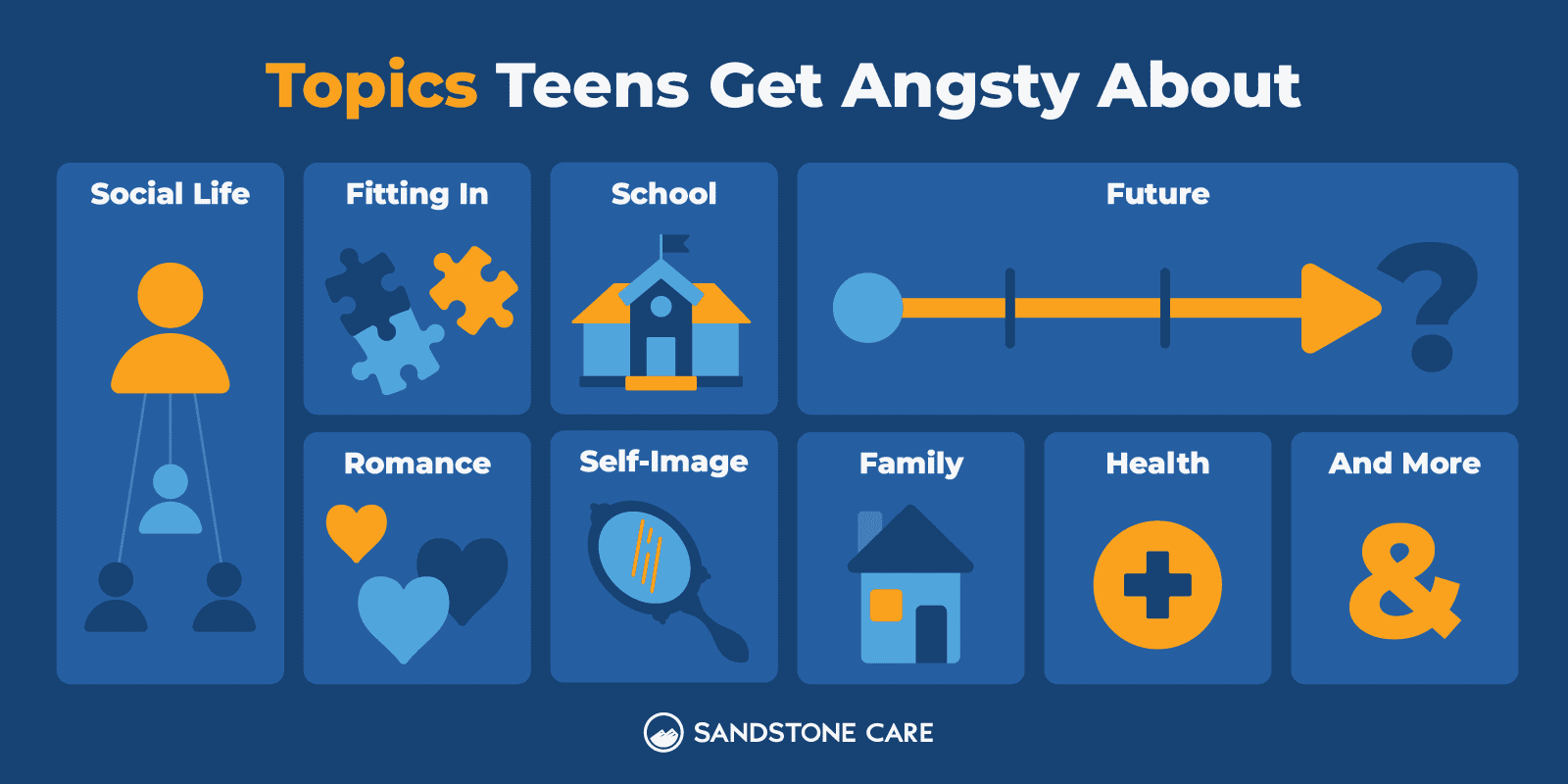
What Triggers Angst?
Everyone can have different triggers for angst.
However, some of the common triggers of angst can include:
- Unfamiliar or unexpected events
- Social media and social comparison
- Feeling that they are not safe or don’t have someone they can trust
- Fear of not fitting in
- Anticipating or worrying about a person’s future
- Alcohol or substance use
Effects of Adolescent Angst
What Are Some of the Effects of Angst?
Angst may cause effects such as:
- Tension
- Nervousness
- Difficulty relaxing
- Sense of dread
- Fears of the worst happening
- Difficulty focusing
- Sleep problems

Is this blog hitting close to home?
We’re here to help.
How Does Angst Affect Teenagers?
Angst can affect many aspects of a teenager’s life. It can affect them mentally, physically, and socially and how they see themselves.
How Does Angst Make You Feel?
Someone experiencing angst can have a mixture of different emotions. They may feel anxious, scared, frustrated, or dreadful.
Dealing With Teenage Angst
How Long Does Teenage Angst Last?
Teen angst can last from the preteen years to the teen years, commonly between the ages of 13 and 19.
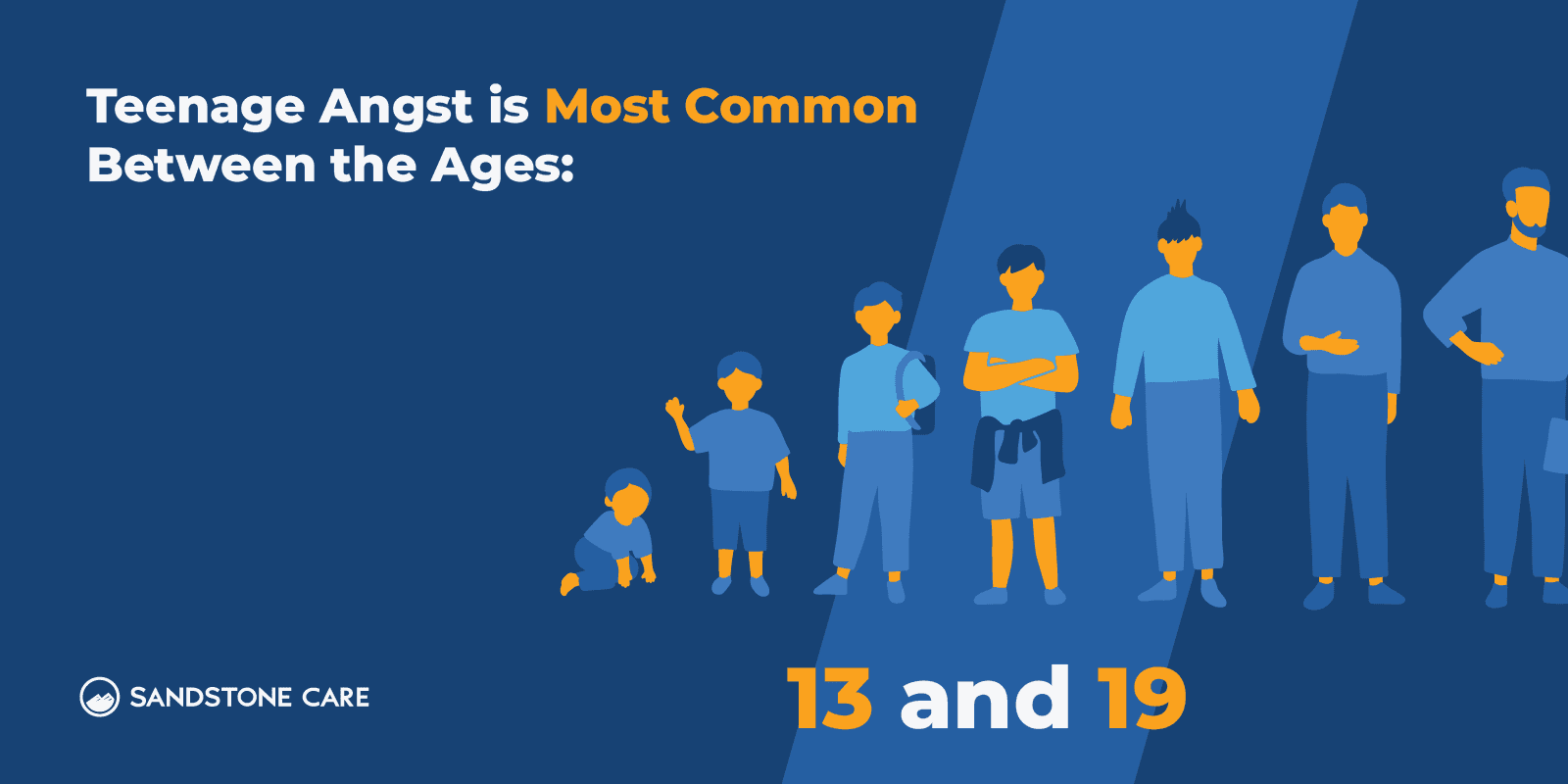
When Does Teenage Angst Stop?
Teenage angst usually stops around the age of 19.
It is important to note that teen angst is less persistent and constant than anxiety. For example, a teenager experiencing angst may experience these feelings of worry or anxiety from time to time, but someone with anxiety will persistently be in a state of worry and nervousness.
What Are 5 Ways to Deal With Teen Angst?
5 ways to help a teen deal with angst can include:
- Making sure they are getting good rest and sleep
- Spending quality time together
- Giving them space and respecting boundaries
- Encourage physical activity and exercise
- Be open to conversations and learn to be a good listener
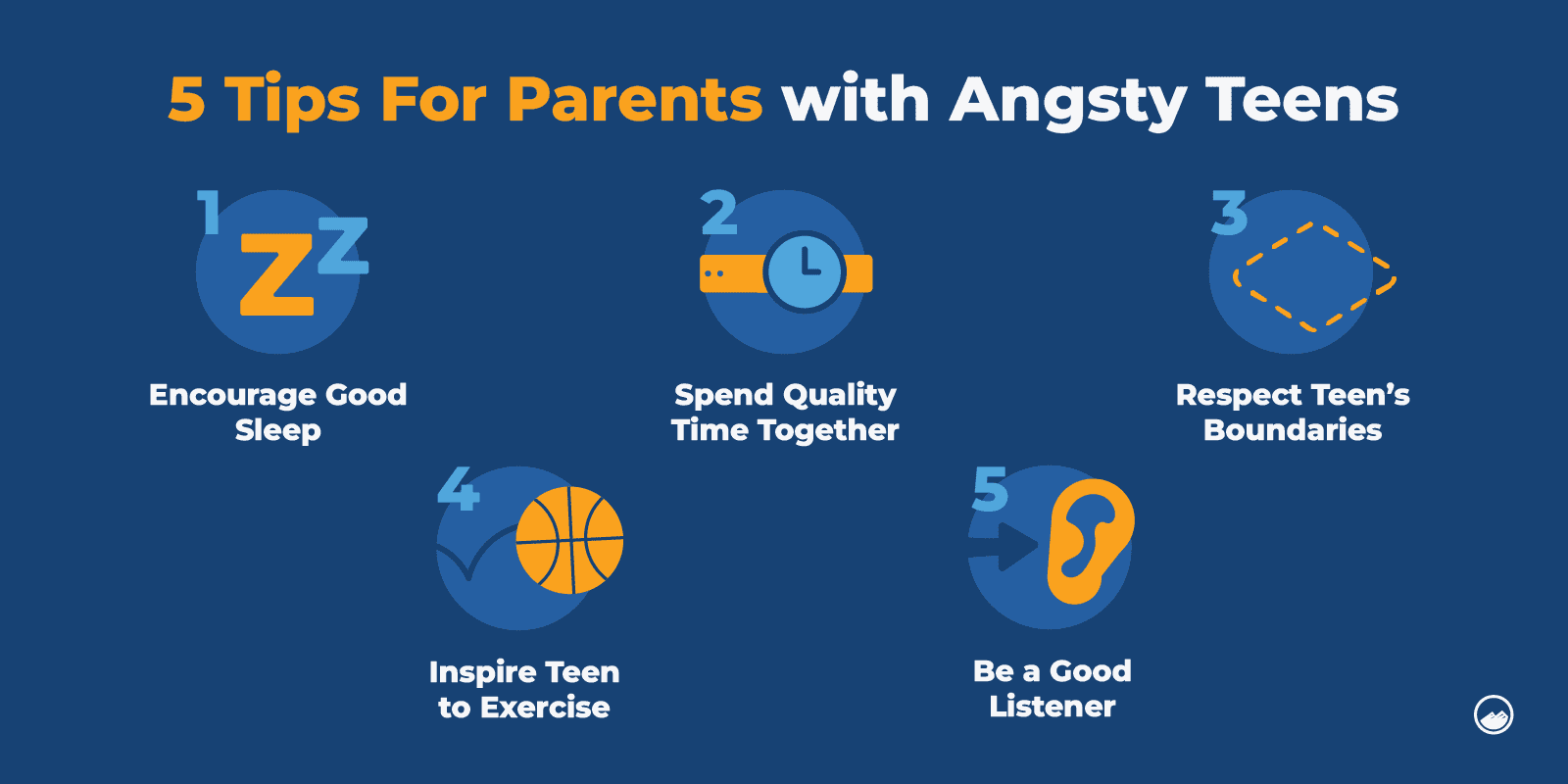
How to Avoid Angst?
Feelings of angst often stem from worries about the future or things that could happen in a person’s life.
One way to avoid these feelings is by practicing mindfulness and meditation. Practicing mindfulness can help a person focus on the present moment and find a sense of calmness and peace.
When levels of stress are high, it can create more feelings of worry and anxiety that can spiral into negative thoughts.
Another way to avoid angst is by practicing gratitude. Focusing on the things that you are grateful for in your life and the things that make you happy can set you up with a more positive mindset rather than allowing your thoughts to focus on negative feelings.
Lastly, practicing self-care can help a person avoid feelings of angst. Things like good sleep, a balanced diet, exercise, and relaxation can help a person find balance in their life and take care of both their physical and mental health.
Common Manifestations of Teenage Angst
How Does Adolescent Angst Manifest Itself?
Adolescent angst can manifest itself in many different ways.
Individuals may get into arguments more often, become more emotional, or refuse to be sociable. They may also become rebellious, irritable, or frustrated with themselves, others, or their life.
Adolescent angst may cause young people to isolate themselves and become more distant, but this may also indicate other mental health concerns like depression.
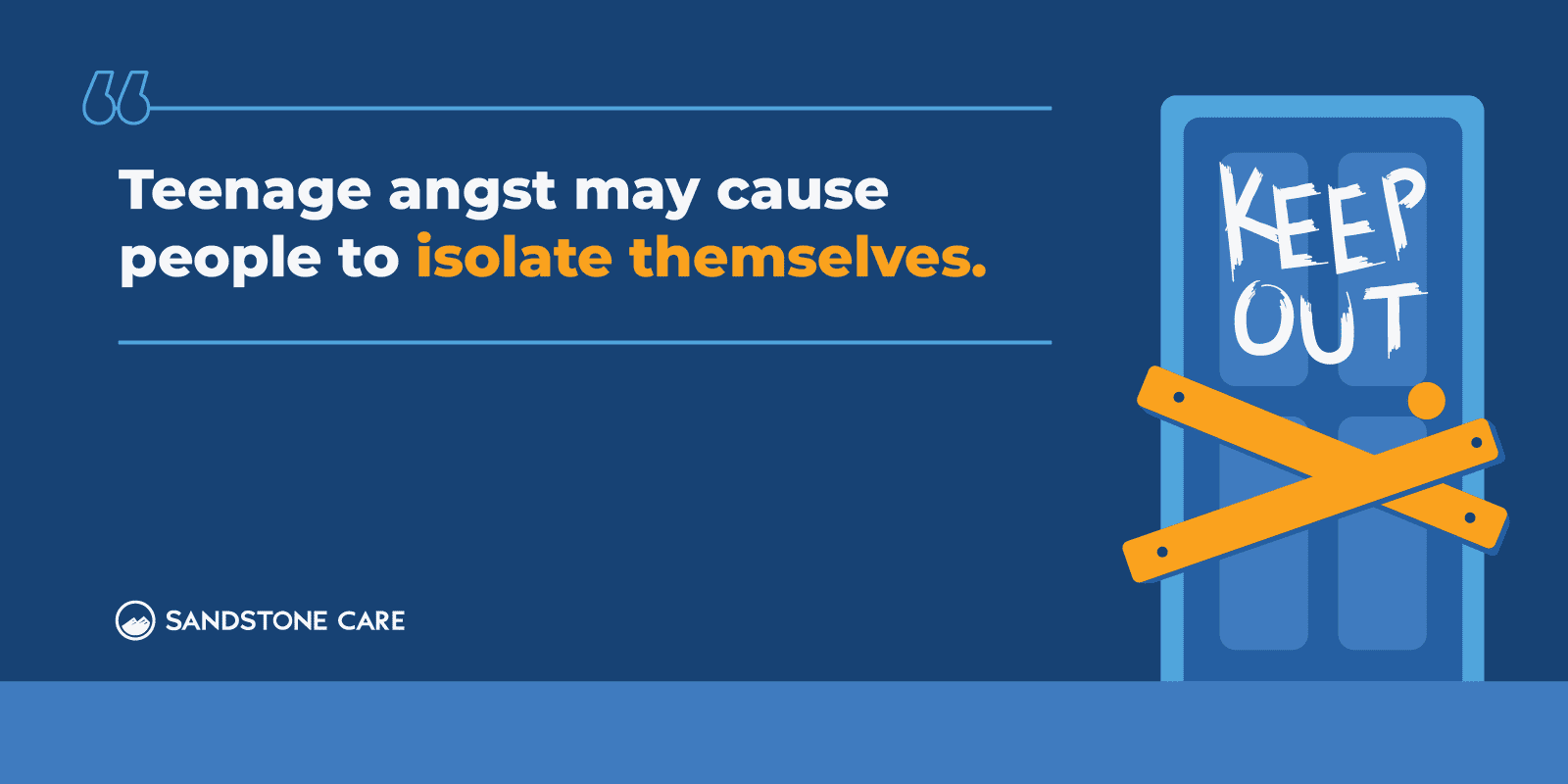
Is It Teenage Angst or Depression?
The main difference between teen angst and depression is that depression is a mental health disorder that can be severe and life-threatening. At the same time, angst can be a normal part of growing up and developing into an adult.
Feelings of angst can share similarities with symptoms of depression, such as mood swings, anxiety, irritability, and more, but the difference between depression and angst is that these feelings and symptoms do not go away over time as they do with angst.
If you are unsure if a loved one may be experiencing angst or depression, it can be helpful to talk about it together and reach out for professional help.
How Is Angst Different From Anxiety?
The major difference between angst and anxiety is that anxiety is more persistent and intense than angst.
However, the two share very similar feelings and signs, and it can be hard for parents and loved ones to tell if a teen is experiencing one or the other.
Another way to tell between the two is that anxiety can take forms in different ways. Not only can it involve worry or irrational fears, but it can also take the form of social anxiety or phobias.
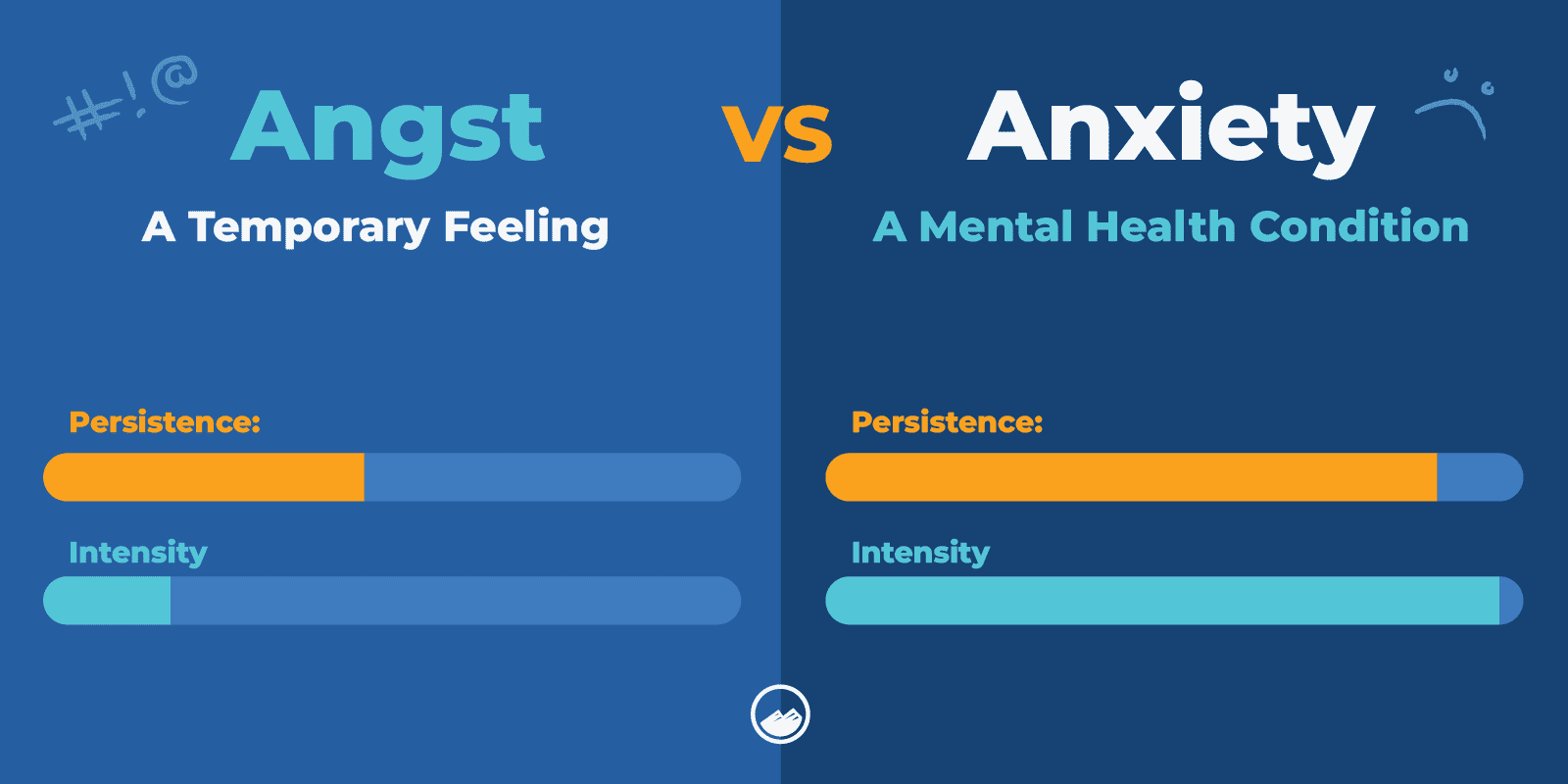
The Positive Side of Teenage Angst
What Are the Benefits of Adolescent Angst?
One of the main benefits, or bright sides, of adolescent angst, is that it can help a person become more aware of their emotions and learn how to regulate and manage them. Adolescent angst can help promote development in growing into an independent adult.
How Can Angst Be a Positive?
Angst can be positive when you look at it because it contributes to a person’s development and helps them foster meaningful connections.
As young people face challenges with feelings of angst, they can learn how to manage their feelings and navigate them both independently and with support. Going through these experiences can help them learn ways to manage stress, cope, and regulate their emotions.
Angst can be another important part of growing up, where the individual ends up coming out of it stronger, with experience and more knowledge.
When to Be Concerned
What Is “Normal” Teen Angst & What’s a Problem?
Teen angst can be a normal part of growing up. As a teenager, individuals go through these challenges that help them grow into independent adults.
However, signs of teen angst may sometimes indicate a more serious underlying problem. If angsty behaviors seem to continue and not go away or worsen over time, it could be a sign of mental health conditions such as depression, anxiety, or self-harming behaviors.
What Are Signs That It’s More Than Teenage Angst?
Mental health conditions that share similar signs with teenage angst include depression and anxiety.
Some of the more common signs of depression include:
- Feelings of worthlessness or shame
- Difficulty thinking, concentrating, or remembering things
- Irritability
- Loss of interest in things they used to once love
- Changes in sleeping and eating habits
- Substance use
- Decrease in school or extracurricular performance and interest
- Isolating or withdrawing themselves, even from loved ones and friends
- Active or passive suicidal ideation
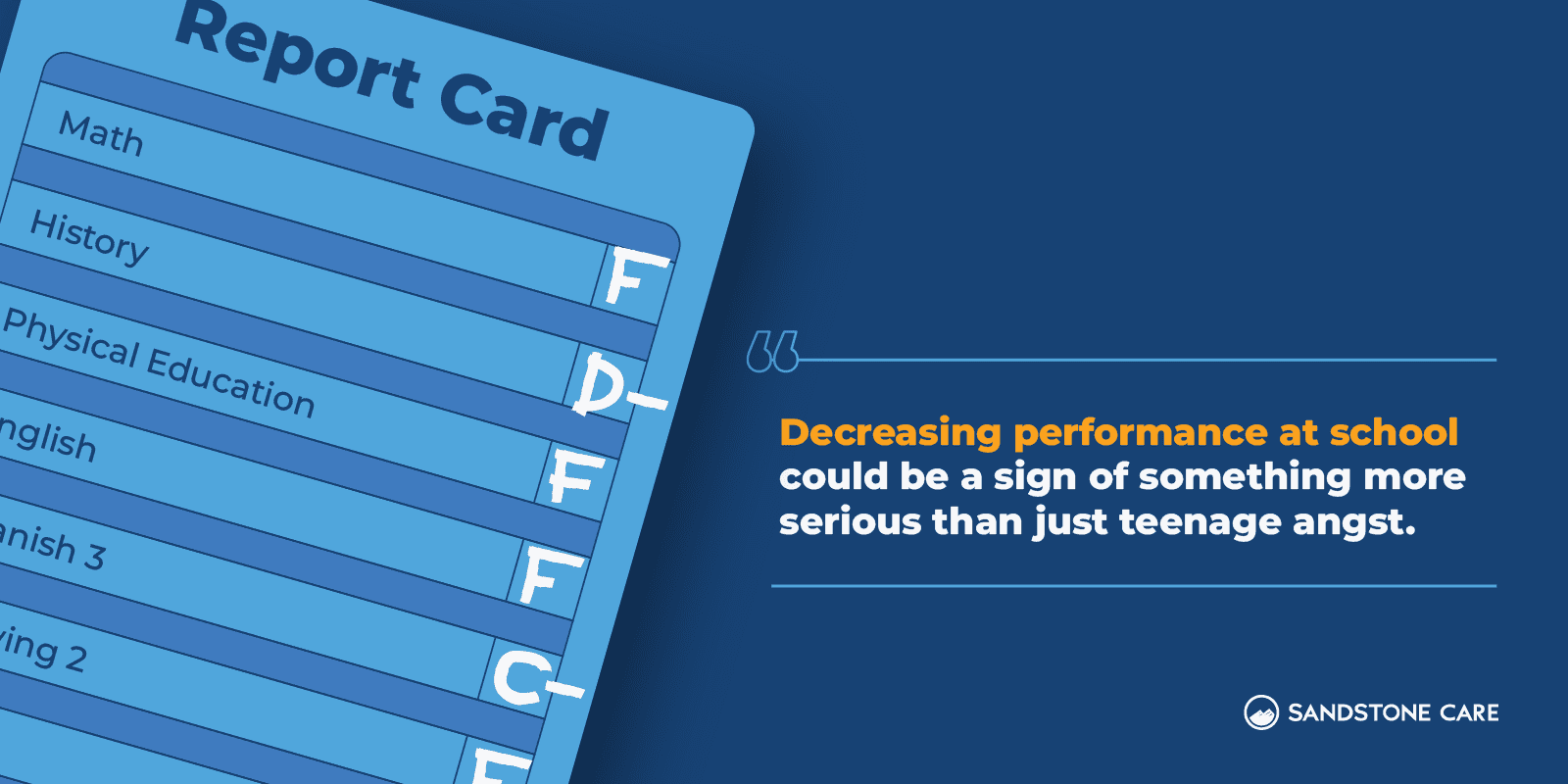
Some of the common signs of anxiety can include:
- Fear of being away from loved ones
- Frequent worry that something bad is going to happen
- Avoiding events or social activities
- Frequent and unexplainable aches or pains
- Extremely self-conscious about appearance
- Fatigue or restlessness
- An extreme change in routines
It is also important to be aware of signs of self-harm or suicidality, which may include:
- Feelings of hopelessness or worthlessness
- Talking or writing about suicide
- Substance abuse
- Engaging in self-destructive behaviors
- Wearing long sleeves, hoodies, or pants, even in hot weather (could be a sign of attempts to cover up self-harm marks)
If you or a loved one are experiencing suicidal thoughts, talk to someone. Call the National Suicide Prevention Lifeline at 988 or call 911.
When Should I Reach Out for Help?
If you notice changes in how a loved one is acting, or it seems like something is off, and it doesn’t go away, it could be a signal to start a conversation with them and help them connect with support if needed.
If you are experiencing challenges yourself and are experiencing any signs and symptoms of angst, depression, or anxiety, talk to someone and connect with help. Getting help from treatment programs can help you find the underlying problem and get the support and care you may need.
Tips for Parents and Guardians:
How Should a Parent Approach Teen Angst?
Approaching teen angst may feel overwhelming or uncomfortable to talk about.
When approaching conversations about teen angst, it is important to find a good time where you can have an open conversation. You don’t want to be judgmental. Instead, maybe start by voicing things you may have noticed or ask them how they are doing or what has been going on in their lives.
It is important to listen, try not to lecture them, and let them know you are there for them. It is also important to be clear with them on what you need from them and avoid condescending.
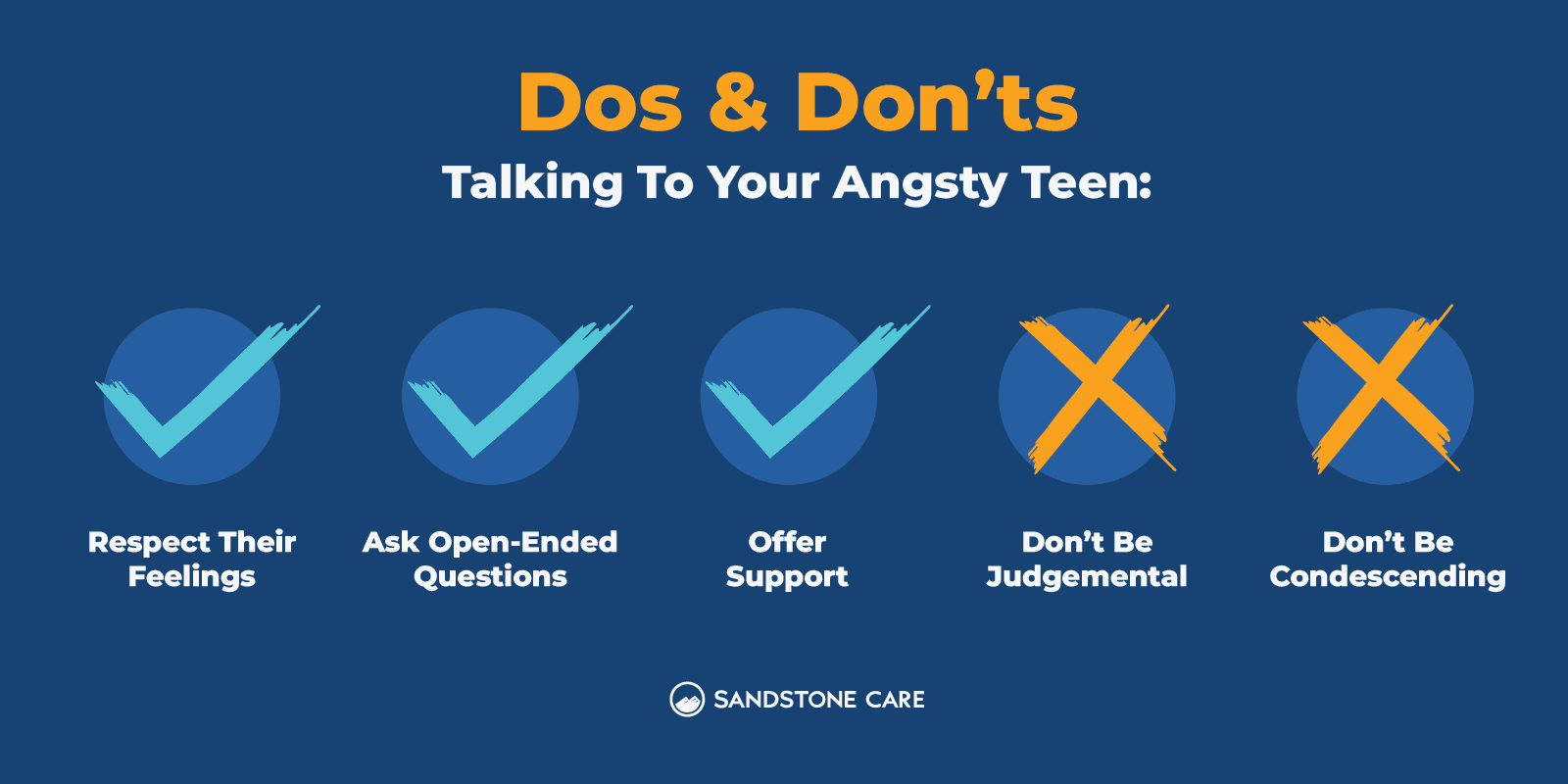
How Do Adults Usually React to Teenage Angst?
Teen angst can also be difficult for adults.
It may upset them, hurt their feelings, or become frustrating. If you are a parent and you are going through this, it is important to understand that your teen’s feelings are not personal to you and that it is normal for teens to go through.
As they go through these changes and stages in their lives, it is important to try to understand both sides and take care of your own mental health.
What Are 5 De-escalating Techniques for Calming Teen Angst?
5 de-escalating techniques that may help calm teen angst can include:
- Going outside
- Listening to them and giving your full attention
- Speaking calmly and collected
- Practicing breathing exercises
- Engaging in an activity such as writing, drawing, or listening to music
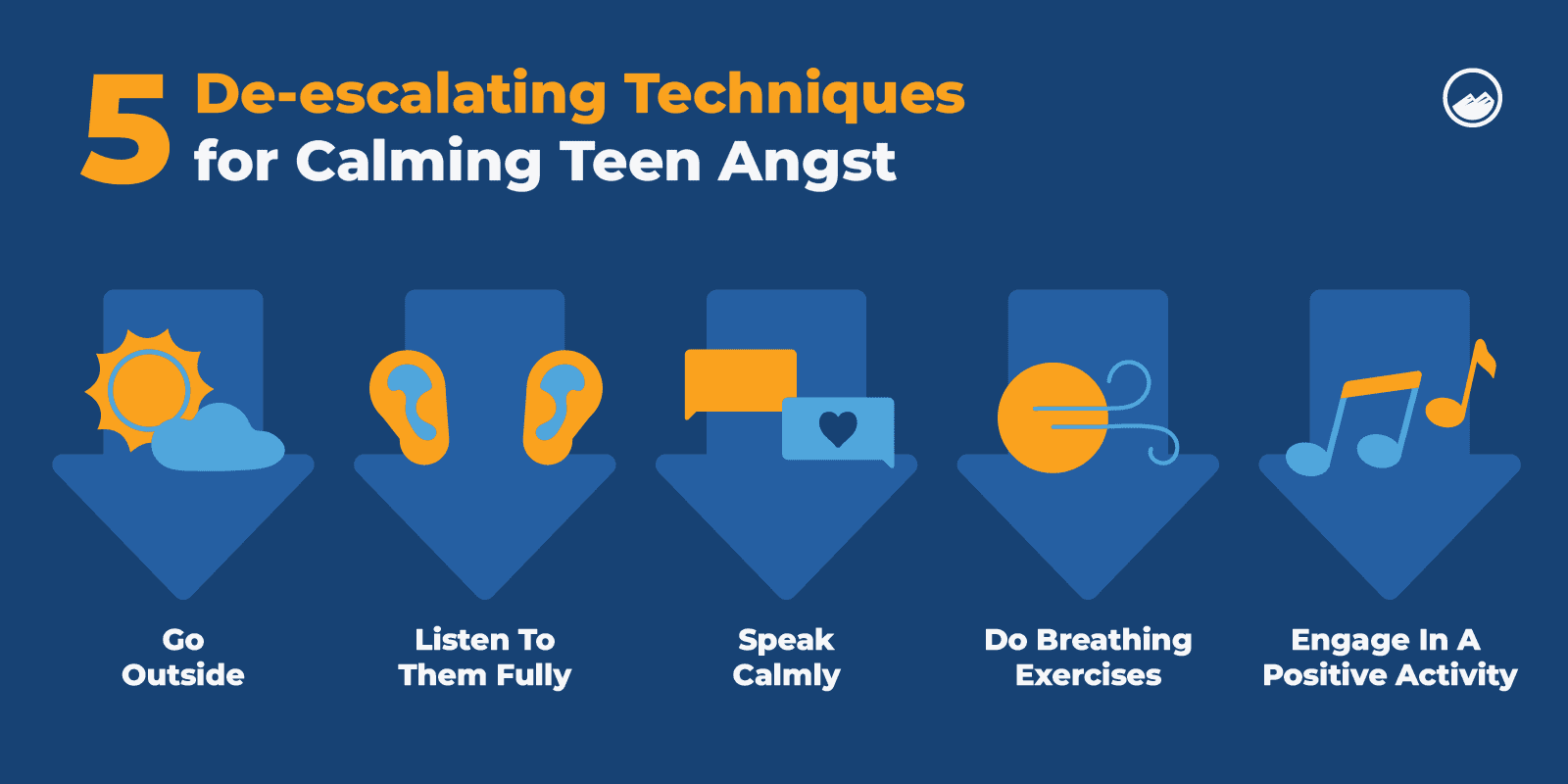
Coping Strategies for Teens:
What Helps With Angst?
Prioritizing self-care can help a person avoid and manage feelings of angst. Making sure you get good rest, eating a balanced diet, doing physical activity every day, and relaxing and doing things you love can all help with feelings of angst.
Additionally, talking to friends, family, and others can help you find support and build meaningful connections where you can feel safe and comfortable to come to if you are ever having a hard time.
How Do You Get Rid of Angst?
Finding what works for you is important in getting rid of angst.
This may include developing new coping strategies such as practicing mindfulness and breathing exercises, journaling, exercising, or connecting with others.
What Is the Best Treatment for Adolescent Angst?
If you are experiencing feelings of angst or are unsure what may be causing these feelings, reaching out to a professional such as your health care provider or a mental health professional can help you address any underlying mental health issues.
There is no treatment for angst, but if there are other things going on, such as anxiety or depression, psychotherapy can be an effective treatment for teens and young adults.
FAQ
You Have Questions, We Have Answers.
Our goal is to provide the most helpful information. Please reach out to us if you have any additional questions. We are here to help in any way we can.
Adults can experience angst, too.
Angst is described as feelings of dread or anxiety that a person of any age can experience. Adults may experience angst about relationships, work, life changes, or the world happening around them.
When an adult is experiencing angst, focusing on taking care of themselves and using techniques such as exercise, meditation, or mindfulness to help them find a sense of calmness and relief can be helpful.
If there is an underlying cause of a person’s angst, it is best to seek professional help to get the support and care you may need.
Teenage angst refers to feeling overwhelmed, worried, and anxious during their teenage years.
According to the American Psychological Association, angst is described as feelings of fear and anxiety and also a state of anguish or despair when a person feels uncertain about their existence.
When a person has an angsty personality, they might have anxious tendencies and be in a frequent state of uncertainty about the world. When someone is filled with angst, they might have difficulty being present in the moment and feeling a sense of calmness.
Sometimes, angst means that a person is anticipating irrational things.
They may think that the absolute worst will happen, and it may impact the way they live their lives. When a person experiences irrational angst, they may only focus on things that may happen instead of things that are happening right now.
When a person has deep angst, they can have strong and intense feelings of fear, anxiety, or dread centered around their idea of themselves, others, or the world.


Let’s Take the Next Steps Together
Teen angst is a normal part of the transition into adulthood, but it is important to know when to seek help. Sandstone Care is here to support teens and young adults with mental health and substance use disorders.







